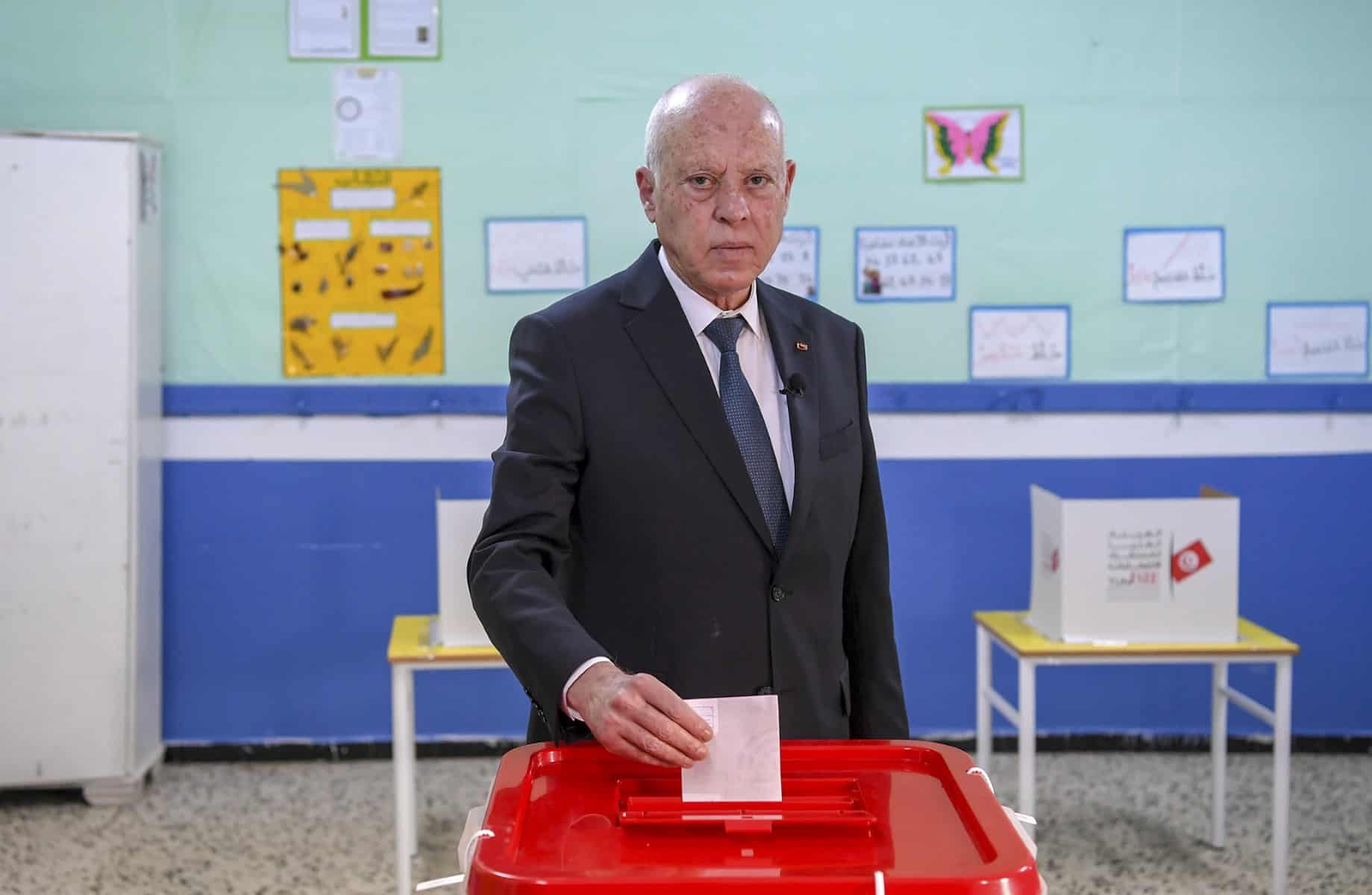Tunis, Tunisia – A prominent rights group accused Tunisian President Kais Saied of “racism and hate speech” on Wednesday after he vowed to crack down on sub-Saharan African migrants.
Saied, who has seized almost total power since a dramatic July 2021 move against parliament, had urged his national security council to take “urgent measures” to tackle an influx of migrants.
“Hordes of illegal immigrants from sub-Saharan Africa are still arriving, with all the violence, crime and unacceptable practices that entails,” he said, according to a statement from his office on Tuesday evening.
“A criminal plot has been underway since the start of the century to change Tunisia’s demographic make-up,” he added.
The statement sparked an outcry online, where many accused the president of outright racism and invoking right-wing conspiracy theories.
The Tunisian Forum for Economic and Social Rights (FTDES) said Wednesday Saied’s discourse was “drowning in racism and hatred”.
“The president is using the migration crisis… to distract attention from economic and social problems,” spokesman Romdhane Ben Amor told AFP.
Tunisians are grappling with a deepening economic crisis, surging inflation and shortages of essential goods as the heavily indebted country edges towards a possible default.
Saied, who has prioritised revamping Tunisia’s post-revolt democracy to install a system in which power is concentrated in the hands of the presidency, has blamed the shortages on unidentified “speculators”.
Ben Amor said Saied’s latest comments showed he had “obviously and totally caved in to pressure from the Italian authorities to stop the flow of migrants” towards European shores.
Last week, 23 rights groups said the state had already started cracking down on migrants from further south in Africa and turning a blind eye to racist “hate speech”.
The organizations, including the FTDES, said some 300 migrants had been detained, often after simple identity checks or after attending court hearings to support relatives.
They added that European migration policies were pushing Tunisia to play a key role in surveillance of migration routes and intercepting migrant boats in the central Mediterranean.
Tunisia, which lies less than 150 kilometres (95 miles) from the Italian island of Lampedusa at its closest point, is a key departure point for African migrants seeking to reach Europe on what the United Nations says is the world’s deadliest migration route.
According to official Italian figures, more than 32,000 migrants, including 18,000 Tunisians, made clandestine journeys from Tunisia to Italy last year.

